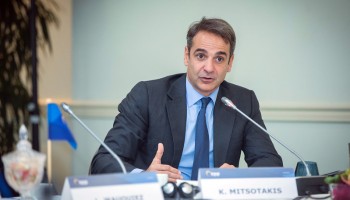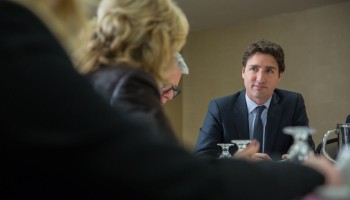Marius Marinescu, a former Democratic Party senator in the Romanian Parliament, recalled he initiated a bill in 2006 aimed at closing the duty-free shops at the land borders. The Senate passed it and only approval by the Deputy Chamber was needed. Immediately after the bill passed the Senate, Marinescu said he encountered pressure from his party leaders.
“I had a huge argument after the bill passed with Anca Boagiu during the meeting of the party leaders,” he said. Boagiu is a deputy in the Romanian parliament, former minister of transportation and former minister of European integration. “Anca Boagiu asked me why I was interfering in the duty-free matter,” Marinescu recalled.
“Another deputy not from the Democratic Party came to my house and tried to bribe me with €1 million to withdraw my bill,” he said. “I was at home alone when he came. He said that this amount could be larger. He said that the issue will be solved no matter what is my decision.” He said he had no witnesses to the visit.“Soon after, Sebastian Bodu called me and Monica Macovei, who was then minister of justice – and said not to interfere. I told them that is a big larceny what is happening. I am not accusing them of taking the money, but the whole situation looked to me very suspicious, especially considering they have a friendly relationship with an owner of a duty-free company. I also know that many Democratic Party leaders have a very good relationship with that person, and even supply themselves with products from one of his shops.”
Bodu was the head of the National Agency of Tax Administration, an institution under the Minister of the Economy and Finance until 2007. He became a member of the European Parliament after the last year Euro-elections.
“Meanwhile, some Social Democratic deputies introduced a new amendment without asking me,” Marinescu said. “Through this amendment, the duty-free shops from the non-E.U. border were to be opened again… I don’t want to accuse anybody, but everything happened very quickly. At that time, I said that (Varujan) Vosganian is Al Capone.” Vosganian is the minister of economy and finance and a member of the National Liberal Party.
Bodu offered a very different version of events. He acknowledged calling Marinescu in order to convince him to quit his legislative initiative on duty-free shops. He wanted Marinescu to withdraw his bill because its passage would actually have the affect of allowing duty-free shops on the non-European Union (EU) border to remain open.
Bodu said his initiative, which had passed and been published in the Official Journal, meant that duty-free shops on the Romanian land borders – both the E.U. and non-E.U. – would have to close in three months. Before those three months had passed, Marinescu proposed his law to close the duty-free shops on the E.U. border only. Marinescu’s bill automatically replaced the law Bodu supported, he said, and therefore kept the duty-free shops functioning on non-E.U. borders. And all this happened due to Marinescu’s “great” initiative, Bodu said.
“Well, from this point of view, I called him to quit his legislative initiative because he was doing nothing else but re-opening the duty-free shops,” Bodu said. “He didn’t understand, and he kept working on his project. We all know what followed. Therefore, the duty-free companies moved their shops to the non-E.U. borders with Serbia, Ukraine and Moldova. I do not to accuse Marius Marinescu of corruption, even though I do not believe the bribe story. I think he didn’t understand why I called him, and maybe now he understands the consequences of his initiative.”





